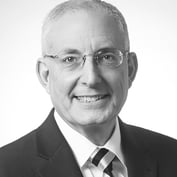Contrary to popular notions, the wealthiest 1%–2% of American investors are a variegated lot.
A new report by Cerulli Associates found that while the majority of affluent investors are able to diversify their assets and wealth management advice across a wide spectrum of vehicles and services, their primary and aspirational goals, as well as privileges, vary significantly as investable assets increase.
Employing data supplied by the Federal Reserve and U.S. Census Bureau, Cerulli projected a high-net-worth marketplace of 833,530 households, those with more than $5 million in investable assets.
The report broke this marketplace into two segments: 771,120 high-net-worth households, and 62,410 ultrahigh-net-worth households, those with upward of $20 million in investable assets.
These households combined own more than $9 trillion in investable assets. Put another way, just 0.7% of all U.S. households own 31% of the country’s investable assets.
According to the report, both of these market tiers may seek and qualify for personalized services and sophisticated products, including direct hedge fund and private equity investing. However, UHNW investors are progressively pursuing the high-touch and extremely private nature of multifamily offices and private trust companies.
On the highest end of the wealth spectrum, single-family offices provide investors with unrivaled education, control and customization, including management of property and household staffing.
Cerulli said most consultants agreed that the SFO structure was reserved for the wealthiest patriarchs and matriarchs ($100 million in net worth or greater) because of annual costs typically running at $1 million, if not significantly more.
The scale and scope of services offered by mainly wirehouses and private client groups continue to dominate overall HNW assets, the report found.
However, registered investment advisors, MFOs and state-registered bank trust companies are gaining substantial traction. Cerulli said it expected these channels to continue gaining market share as they enhance their services and staffing talent.








 January 08, 2014 at 09:42 AM
January 08, 2014 at 09:42 AM










